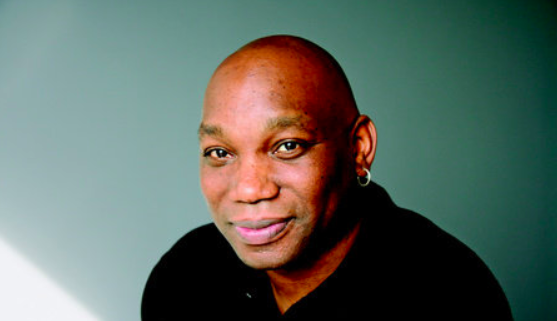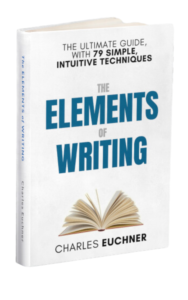This is the second part of a two-part interview with Howard Bryant, the journalist and author of books about racism and the Boston Red Sox, the steroids crisis, and activism in sports and biographies of Henry Aaron and Rickey Henderson. You can read the first part here.
CE: What essential skills did you learn as a newspaper reporter, especially covering a beat like baseball?
HB: The big issue is access–direct access to information and the people you’re writing about. It’s been one of the greatest things that’s been lost as our business shrinks. We live in a time when people conflate opinion and fact. It seems to be enough to have an opinion. That is the most dangerous thing–devaluing personal experience in favor of my opinion.
One of the differences between being on the sports beat and another beat is that when I was a beat writer at the San Jose Mercury News and covering tech for the Oakland Tribune, 95 percent of it was phone work. When you cover a baseball beat, its 175 days talking to people face to face and you’re in their work environment every day and if you write something that they don’t like, you’re standing there the next day and you have to deal with it. You have to defend what you do, which forces you to be accurate and accountable and even face some of your own demons–are you timid and don’t want confrontation, are you fearless, do you know how to talk to people.
You know, in journalism we teach the inverted pyramid, we teach who, what, when, where, why, we teach how to cover fires. The one thing we never teach people how to ask questions. How do you extract information from someone who doesn’t want to talk to you? How are you doing to talk to someone you’re going see them from early February to the World Series, knowing full well they don’t want you there. It’s an adversarial relationship.
CE: Can you share some of your “tricks of the trade”–the skills and techniques that you use as a writer?
HB: The first thing is learning how to ask questions, how to approach people because in our business everything you’re doing is face-to-face and on the fly and you can’t take it back. So much is done during a scrum [interviews in which a player meets several dozen reporters at the same time]. If i have a sensitive questions, I don’t want to ask in front of 40 people because then the guy looks like a deer in the headlights. You take them aside and ask away, so he doesn’t feel embarrassed and you don’t look like you’re grandstanding..
I outline a lot. I outline columns. All my books are heavily outlined–even the sections, not just the chapters–to make sure the dots are connected. One of the beauties of books is it’s almost like jazz. You have your main line but also have these solos and tributaries, you can on on these riffs and tell these little stories, as long as you can get back to the main line. If you can’t get back to the main line, you have chaos. That’s what the outline is for. It reminds you to get back to that main line.
For every book I work on, I write a theme. There’s a theme to every book. If you can’t tell me what the book’s about in one sentence, you don’t have a book. In Shut Out, the book was about giving people a chance to speak who hadn’t had it before. When you talked about the race issue and Boston, it’s always been written about from the perspective of the Red Sox and was Tom Yawkey [the longtime owner of the team] a racist. I didn’t really care about that. I wanted the black players to tell me what it was like to play in Boston. Juicing the Game was very different. That was about integrity in a time of cynicism. Every time you got into the question of steroids, someone would say, “Well, you would do the same thing for $10 million.” But maybe I wouldn’t–and, besides, there were lots of players who didn’t and it cost them a lot of money. In The Last Hero, I viewed Henry Aaron as a locomotive with a coal engine. I wanted to know: What is that coal made of?
The new book, The Heritage, is all about the Paul Robeson, Jackie Robinson, Muhammad Ali lineage–the legacy–on athletes today. The book is about post- 9/11 patriotism colliding with the post-Ferguson black athletes. After almost 50 years of athletes not getting involved, suddenly you’ve got athletes reviving their political positions, at a time when sports has become one of the most politicized places in America.
CE: So what’s your best advice on asking questions? Especially someone who’s prickly and wants to get out and get back to the hotel or a restaurant?
HB: It’s all relationships. If you’re the guy who only talks to a player when he fucks up in the third inning, then you’re going to be the person they all hate, you’re that hatchet man so we’re never going to have a relationship. You have to take an interest in this player, as a person, at all times. You talk to them about as many things outside of baseball as possible. You learn their families, you learn their interests. One of the reasons Johnny Damon and I had such a good relationship is we used to talk fantasy football. Robin Ventura and I used to talk about music all the time. David Justice was a big movies guy. C.C. Sabathia and I argue about Marvel Comics. If C.C. has a bad game and sees me coming up, his back doesn’t get up.
If you do have to [write a negative story] a guy, give him the last word. There have been many situations when guys I liked had bad games, got busted for steroids–whatever, they were in the news for the wrong reasons. You had to do your job, but also from a human standpoint, you come to them and you say, “OK, here’s what I’m writing about, here’s the story, here’s what people are saying,” and you let them have the last word so there are no surprises. The worst thing that can happen to anybody in the news is you’re talking one way and the story that runs looks very different. And suddenly you betrayed somebody.
If you have an Albert Bell or a Mark McGwire who wants nothing to do with you and doesn’t want to talk movies with you, then you get the information you need and simply ask questions directly. You go to Roger Clemons and say, “It seems like you were cruising till the fourth and then it went wrong–what do you remember about that?”
When I first covered the Yankees as a beat writer, George King of the New York Post gave me this piece of advice: When you walk into their environment, always talk to a players. The players hate reporters standing in the middle of the room because they think you’re there to watch them walk around in their underwear, that you’re a fan like everyone else. But if you talk to people and do your job, they’ll respect you.


